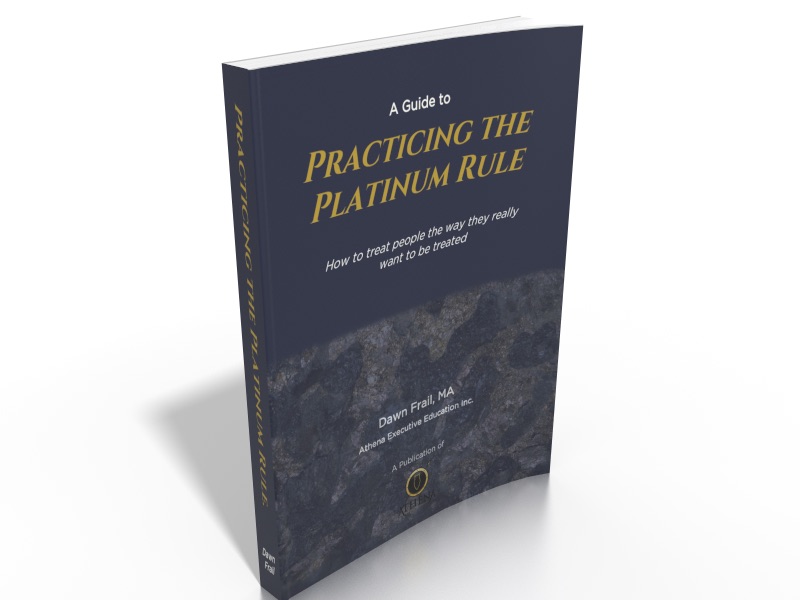Being a leader has its ups and downs. Sometimes you win, sometimes you lose. Mostly you’re exhausted, and if you do it right, you’re also exhilarated. But this rollercoaster ride can take its toll on you physically, mentally and emotionally. Added to this stress are other factors outside of work that increase the pressure; family, fitness, finances, health, relationships.
To be successful over the long haul, you must have resilience. Resilience is the secret sauce of a successful leadership career.
Define Resilience
Resilience is the capacity to recover from difficulties; toughness.
Think of resilience as your bounce-back factor. It’s not a question of whether bad things will happen, but rather when they will happen. And when they do, how long will it take you to recover and get back to normal? What does it take to come out of a crisis feeling even better than before? How can you become stronger because of these trying times, and increase your resilience?
Acknowledge Circle of Concern
First, let’s address some things that are outside of our control when it comes to building resilience.
There are biological factors that can affect our resilience. In some people (and please do not use this as an excuse if you are not in this category), the pituitary and thyroid glands are not functioning at optimal levels. This means the release of stress-related hormones is not working properly. This is only one reason why some people are more prone to depression, and/or may take longer to recover from stressful situations. But of course, I’m not a doctor, and you should seek the advice of a medical professional if you think you might be in this category.
For the rest of us, let’s start with the obvious. Our physical health has a significant impact on our ability to bounce back. Just think of a time you were sick in bed, or had too much fun the night before and drank too much and slept too little. It takes longer to get back up to full speed if we were in sub-optimal physical condition before the “affliction.” So our starting point is certainly an important consideration.
Of course, if any of these things can be impacted by being more proactive and making different choices, then wonderful. If not, focus your time and attention on the things that you can do something about.
Control the controllables, and let the rest of it go.
 Understand Self-Esteem and Self-Respect
Understand Self-Esteem and Self-Respect
How do you feel about yourself? About your own significance? Whether good or bad, positive or negative, self-esteem is a complex structure of perceptions that are formed, and reconfirmed, continuously throughout our lives. The importance we place on different aspects related to our self-image change over time. As a teenager, having a pimple on my face meant the end of the world, whereas now, it hardly bothers me. Included in this complex web are our ethical and moral standards. Who do we strive to be and how do we feel we measure up against our own scorecard? Have I had a successful career? Have I raised my children properly? Have I delivered on the promises I have made?
Self-respect is closely connected to self-esteem, as it is a feeling of confidence and pride in our own worth. With self-respect, we like ourselves because of who we are and not because of what we can do. Can we accept ourselves the way we are and love ourselves, despite how others may feel about us or what others may say to us? If someone insults us or puts us down in some way, can we look at those words as just words and not something that we need to own? When we are disrespected can we stand up for ourselves and refuse to be treated in this way, and like water off a duck’s back, can we let ridicule slide right off?
None of us are perfect, and we all fall short of our highest expectations, but how many of us have given up on a life-long dream because someone told us we weren’t __________ (you fill in the blank) enough? I wanted to be a helicopter pilot, but an unsuccessful stint in the Air Cadets as a youth squashed that dream… even though I still look up longingly into the sky when one flies by.
Resilience has a tight connection to self-esteem (value yourself for your abilities) and self-respect (value yourself as a human being), and both need to be developed. The research done by Ellen Langer, Judith White and Johnny Walsch at Harvard University points to the advantages of self-respect. They claim high self-esteem, which is an evaluative mindset, can get us into trouble because of its critical nature, whereas high self-respect is about acceptance, leading to less blame, guilt, and stress. So make a conscious decision not to be a victim, to get to know yourself, and to discover what makes you great.

 Think Creatively
Think Creatively
Our imagination is really quite an amazing thing. We can conjure up stories in our minds of winning great battles, slaying huge dragons, and winning the hearts of our true love to live happily ever after. Or we can imagine the worst catastrophe so intensely that our blood pressure rises and we can trigger our own panic attack or bout of sadness. The imagination is a powerful thing.
For people to be able to more quickly bounce back from the challenges of life, the imagination needs to be able to see the light at the end of the tunnel and believe that tomorrow is a new day. It’s the ability to find meaning in the face of dire circumstances and tragic situations. This is the epitome of “what doesn’t kill you makes you stronger”
It’s our imagination that fuels creative problem solving and is necessary for us to respond to changes and challenges more effectively. A 5-step process to successfully walk through the situation is described in Dr. Frederic Flach’s book titled Resilience.
- Fact-finding: reexamine the situation to get as much information and as many objective details as possible.
- Problem finding: redefine the issues to see them in a new light, based on the facts and not assumptions or misinterpretations.
- Idea finding: generate options based on the new problem definition.
- Solution finding: evaluate the meaning of the options, plus the positive and negative consequences of implementing them.
- Acceptance finding: develop the best ideas fully and test them out by taking some action to achieve them.
As you look at this list, you may say to yourself that there’s no rocket science here, and you would be right. This same formula is found in many situations, from basic problem-solving strategies to effective meeting management. But the great thing about sticking to the basics is that they work. Part of what makes this process so powerful is that it starts with a reality check.
You may associate this process with brainstorming (and after all, that’s what this is!) so it is critical to come up with as many ideas as possible in step 3 before evaluating them in step 4. The critical nature of our minds will impair our ability to be creative so focus on quantity, not quality, and defer judgment until later.
I love the quote by Albert Einstein that says we cannot solve a problem with the same thinking that created it. If we want to come up with new solutions, we have to start by looking at our problem with different eyes.
When it comes to resilience, the better we are at thinking creatively and seeing things in a new light, the faster we can see that there is a way out that just might work. As soon as we begin to think that way, we believe that way. And as Napoleon Hill is famous for saying, “whatever the mind can conceive and believe, it can achieve.

Choose Your Environment Carefully
My mother used to tell me to “choose your friends carefully for you become what they are.” If only I had listened a little more carefully and taken her words to heart I might have avoided some of the missteps I’ve made in my life. But she was right that the people around us could significantly impact our ability to bounce back.
Surrounding yourself with people who respect you and have positive attitudes about you and about life in general, can make the world of difference. I have always believed that words have power and many times in my life this has proven to be true. In this world of social media, people have great courage while sitting alone and thinking in sound bites of 140 characters. Few of us are truly gifted enough to communicate a clear message with honourable intent in so few words. So if you’re going through something and want to keep your environment positive and friendly, you may need to unfriend some people, unplug from certain social media channels, or stop reading/watching/listening to the news altogether.
Oh, by the way, if people get offended because you unfriended them, that’s about them, and not about you. So don’t own it.
To be a successful leader over the long haul, you must have resilience. We aren’t born with resilience… we develop it. Take steps today to increase your resilience by focusing on what you can control, building your self-respect, learning to think creatively, and keeping your environment positive. These are the 4 ingredients in the secret sauce for success.
Learn more about developing a Leadership Mindset, part of the Certificate in Strategic Leadership program offered by the Athena business school.

